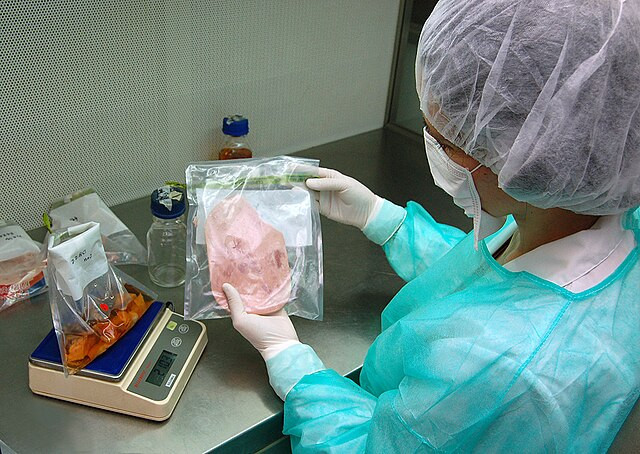A deadly listeria outbreak linked to sliced deli meat has left two people dead and 28 others hospitalized across the Midwest and East Coast, according to a recent announcement by the Centers for Disease Control and Prevention (CDC). The outbreak has raised significant concerns among health officials as they work to identify the source and prevent further infections.
The CDC's investigation revealed that the illnesses were reported between May 29 and July 5. Among the victims, one person died in Illinois and another in New Jersey. The CDC noted that the true number of people affected might be higher, as some individuals may have experienced milder symptoms and not been tested for listeria.
Listeria is particularly dangerous for pregnant women, individuals over 65, and those with weakened immune systems. The bacteria can cause severe illness and even death when it spreads from the gut to other parts of the body. In pregnant women, listeria can lead to miscarriage or premature birth. While others can contract listeria, serious illness is rare outside these high-risk groups.
The states reporting cases include New York (7), Maryland (6), Missouri (2), Virginia (2), Georgia (2), Minnesota (1), Wisconsin (1), Illinois (1), Pennsylvania (1), North Carolina (1), and Massachusetts (2). The CDC has identified that 16 of the 18 patients interviewed had consumed meats sliced at deli counters, particularly turkey, liverwurst, and ham. There is no evidence that prepackaged deli meats are involved.
Listeria bacteria can spread easily in deli environments, moving from equipment to surfaces, hands, and food. Refrigeration does not kill the bacteria, but heating the meat to an internal temperature of 165 degrees Fahrenheit can. The CDC recommends that people at higher risk of listeria infection avoid consuming meats sliced at deli counters unless they are heated until steaming hot.
Symptoms of listeria infection typically appear one to four weeks after consuming contaminated food, but they can start as soon as the same day or as late as 70 days afterward. These symptoms include headaches, stiff neck, confusion, loss of balance, convulsions, fever, and muscle aches. Anyone experiencing these symptoms after eating sliced deli meat should seek medical attention immediately.
The CDC and the US Department of Agriculture's Food Safety and Inspection Service are actively investigating the source of the contaminated meat. However, no recalls have been issued yet, as the specific type of meat causing the outbreak remains unidentified. Most of the sick individuals reported consuming turkey or liverwurst, with some also having eaten ham from various grocery store delis.
Florida State Senator Tina Polsky, who played a pivotal role in advocating for the law that led to the release of these transcripts, expressed her shock at the handling of the case. "I am appalled to see how these victims were treated by those in authority who were supposed to be protecting them," Polsky said. "The handling of Epstein's case reveals a troubling pattern of leniency and oversight, raising serious questions about the prosecutorial decisions made."
Public health officials are urging individuals who have eaten sliced deli meat to clean their refrigerators and any surfaces that may have come into contact with the meat to prevent further spread of the bacteria. The CDC also encourages those who develop listeriosis symptoms to cooperate with local health officials, who may need detailed information about their recent food consumption to help trace the outbreak's source.
The timeline of the outbreak spans several months, with the first reported illness occurring at the end of May and the most recent on July 5. DNA fingerprinting tests showed that the bacteria from the sick individuals were genetically similar, suggesting a common source of infection.
As investigations continue, health authorities stress the importance of caution and preventive measures, especially for those in high-risk groups. The CDC's advice to avoid deli meats unless thoroughly heated remains a critical step in reducing the risk of infection during this ongoing outbreak.






